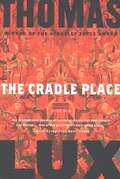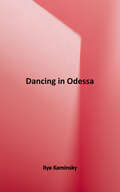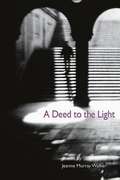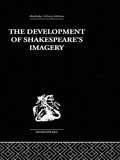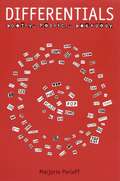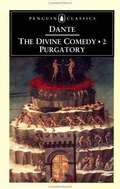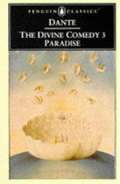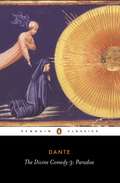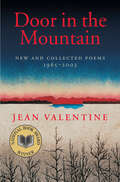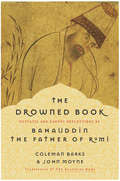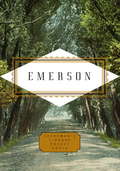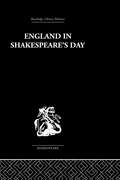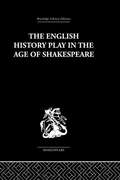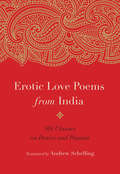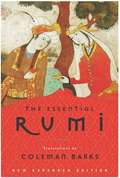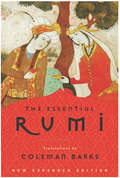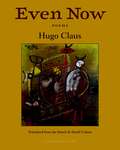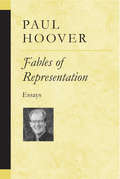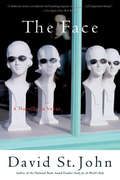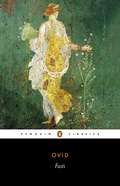- Table View
- List View
The Cradle Place
by Thomas Lux"[Lux is] sui generis, his own kind of poet, unlike any of the fashions of his time." - Stanley KunitzThomas Lux is humorous, edgy, and ever surprising in The Cradle Place, his tenth collection of verse. These fifty-two poems question language and intention and the sometimes untidy connections between the human and natural worlds. Lux has long been an outspoken advocate for the relevance of poetry in American culture, and his voice is urgent and unrelentingly evocative. As Sven Birkerts has noted, "Lux may be one of the poets on whom the future of the genre depends.""A book full of arresting images . . . The natural world, as it appears here, is at first lovely . . . but turns out dangerously vanquished . . . Not since Plath has hysteria looked this kissable." - San Francisco Chronicle"Lux has a gift for the swiftly turned expression . . . Such immediacy and quirkiness will hold a reader." - Poetry"Readers will be mesmerized." - Poetry Book of the Year, Library JournalTHOMAS LUX holds the Bourne Chair in Poetry and is director of the McEver Visiting Writers Program at the Georgia Institute of Technology. He has been awarded three NEA grants and the Kingsley Tufts Award, and is a former Guggenheim Fellow. He lives in Atlanta.
The Daddy Machine
by Johnny ValentineThis is the second edition and it has extensively revised text and new art work. The first edition was published in 1994. "It had levers of purple and panels of green. It had gizmos and gadgets and more. There were silvery gears, and a big motor, too. We spread them all out on the floor. I said, "Let's make a robot, a clever machine, that can run around doing the chores! We'll design it to sweep, and to vacuum the rugs. And it might even wax all the floors!" "Oh, but I've got a better idea!" said Sue. "Who cares if the carpet is clean? Why, we'll take all these parts and invent for ourselves, the world's very first Daddy Machine."
Dancing in Odessa
by Ilyá KamínskyWinner of the 2002 Dorset Prize, and recipient of the Ruth Lilly Fellowship, Ilya Kaminsky is a recent Russian immigrant and rising poetic star. Despite the fact that he is a non-native speaker, Kaminksy's sense of rhythm and lyic surpasses that of most contemporary poets in the English language. This magical, musical book of poems draws readers into its unforgettable heart, and Carolyn Forché writes simply "I'm in awe of his gifts."
A Deed to the Light
by Jeanne Murray WalkerIn A Deed To the Light Jeanne Murray Walker asks probing questions about the depth of grief, about letting go, and about the possibility of faith. Her poems have been described by John Taylor, writing in Poetry, as "splendid, subtly erudite, uplifting, and funny."
The Development of Shakespeare's Imagery (University Paperbacks Ser.)
by Wolfgang ClemenFirst published in 1951. The edition reprints the second, updated, edition, of 1977. When first published this book quickly established itself as the standard survey of Shakespeare's imagery considered as an integral part of the development of Shakespeare's dramatic art. By illustrating, through the use of examples the progressive stages of Shakespeare's use of imagery, and in relating it to the structure, style and subject matter of the plays, the book throws new light on the dramatist's creative genius. The second edition includes a new preface and an up-to-date bibliography.
Differentials: Poetry, Poetics, Pedagogy
by Marjorie PerloffA new collection of essays from a distinguished critic of contemporary poetry. Marjorie Perloff is one of the foremost critics of contemporary American poetry writing today. Her works are credited by many with creating and sustaining new critical interest not only in the work of major modernist poets such as Yeats, Pound, Eliot, and Williams but also in the postwar tradition of American poetic innovation that ranges from the Black Mountain poets, through the New York School and concrete poetry, to the Language Poets of the 1980s and '90s. In Differentials, Perloff explores and defends her belief in the power of close reading, a strategy often maligned as reactionary in today's critical climate but which, when construed differentially, is vital, she believes, to any true understanding of a literary or poetic work, irrespective of how traditional or experimental it is. Perloff also examines key issues in modernism, from Eliot's conservative poetics and Pound's nominalism to translation theory (Wittgenstein, Eugene Jolas, Haroldo de Campos), and the contemporary avant garde, as represented by writers like Susan Howe, Tom Raworth, Rae Armantrout, Ron Silliman, Ronald Johnson, Caroline Bergvall, and Kenneth Goldsmith. Ultimately, Perloff's most important offerings inDifferentialsare her remarkably original reflections on the aesthetic process: on how poetry works, and what it means, in and for our time.
The Divine Comedy: Purgatory
by Dante AlighieriBeginning with Dante's liberation from Hell, Purgatory relates his ascent, accompanied by Virgil, of the Mount of Purgatory - a mountain of nine levels, formed from rock forced upwards when God threw Satan into depths of the earth. As he travels through the first seven levels, Dante observes the sinners who are waiting for their release into Paradise, and through these encounters he is himself transformed into a stronger and better man. For it is only when he has learned from each of these levels that he can ascend to the gateway to Heaven: the Garden of Eden. The second part of one of the greatest epic poems, Purgatory is an enthralling Christian allegory of sin, redemption and ultimate enlightenment.
The Divine Comedy: Paradise
by Dante AlighieriIn Paradise, having plunged to the uttermost depths of Hell and climbed the Mount of Purgatory, Dante ascends to Heaven, continuing his soul's search for God, guided by his beloved Beatrice. As he progresses through the spheres of Paradise he grows in understanding, until he finally experiences divine love in the radiant presence of the deity. Examining eternal questions of faith, desire and enlightenment, Dante exercised all his learning and wit, wrath and tenderness in his creation of one of the greatest of all Christian allegories. Translation is by Dorothy L. Sayers, completed and introduced by Barbara Reynolds.
The Divine Comedy & Paradise
by Dante AlighieriIn Paradise, having plunged to the uttermost depths of Hell and climbed the Mount of Purgatory, Dante ascends to Heaven, continuing his soul's search for God, guided by his beloved Beatrice. As he progresses through the spheres of Paradise he grows in understanding, until he finally experiences divine love in the radiant presence of the deity. Examining eternal questions of faith, desire and enlightenment, Dante exercised all his learning and wit, wrath and tenderness in his creation of one of the greatest of all Christian allegories.
Door in the Mountain: New and Collected Poems, 1965-2003 (Wesleyan Poetry Series)
by Jean ValentineSince the 1965 publication of her first book, Dream Barker, selected for the Yale Younger Poets Award, Jean Valentine has published eight collections of poetry to critical acclaim. Spare and intensely-felt, Valentine's poems present experience as only imperfectly graspable. This volume gathers together all of Valentine's published poems and includes a new collection, "Door in the Mountain."Valentine's poetry is as recognizable as the slant truth of a dream. She is a brave, unshirking poet who speaks with fire on the great subjects--love, and death, and the soul. Her images--strange, canny visions of the unknown self--clang with the authenticity of real experience. This is an urgent art that wants to heal what it touches, a poetry that wants to tell, intimately, the whole life.<P><P> Winner of the National Book Award
The Drowned Book
by John Moyne Coleman BarksThe Lost Words of the Sufi Master and Father of RumiBahauddin, Rumi's father, was not only a major force in the development of Islamic spirituality, but also a deeply influential force in his son's life. In this, the first ever substantial English version of a wonderful but virtually unknown book, Bahauddin proves to be a daring, spiritual genius. His voice comes through the delightful, passionate craft of Coleman Barks, who transforms the Persian translations of John Moyne into fresh spiritual literature.
The Drowned Book
by Coleman Barks John MoyneThe Lost Words of the Sufi Master and Father of Rumi Bahauddin, Rumi's father, was not only a major force in the development of Islamic spirituality, but also a deeply influential force in his son's life. In this, the first ever substantial English version of a wonderful but virtually unknown book, Bahauddin proves to be a daring, spiritual genius. His voice comes through the delightful, passionate craft of Coleman Barks, who transforms the Persian translations of John Moyne into fresh spiritual literature.
Eloise Greenfield: Poetry to Grow On (Leveled Readers 4FOG)
by Laura JohnsonBrief biography of Eloise Greenfield, a poet who grew up during the Great Depression.
Eloise Greenfield: The Music of Poetry (Leveled Readers 4FOG)
by Laura JohnsonEloise Greenfield is a poet who writes for children. As you read about this poet, monitor your reading to check your understanding. Reread to clarify any difficult sections.
Emerson: Poems
by Ralph Waldo EmersonRalph Waldo Emerson is one of the best-loved figures in nineteenth-century American literature. Though he earned his central place in our culture as an essayist and philosopher, since his death his reputation as a poet has grown as well.Known for challenging traditional thought and for his faith in the individual, Emerson was the chief spokesman for the Transcendentalist movement. His poems speak to his most passionately held belief: that external authority should be disregarded in favor of one's own experience. From the embattled farmers who "fired the shot heard round the world" in the stirring "Concord Hymn," to the flower in "The Rhodora," whose existence demonstrates "that if eyes were made for seeing, / Then Beauty is its own excuse for being," Emerson celebrates the existence of the sublime in the human and in nature. Combining intensity of feeling with his famous idealism, Emerson's poems reveal a moving, more intimate side of the man revered as the Sage of Concord.
England in Shakespeare's Day
by G B HarrisonFirst published in 1928. This book collects together over one hundred sources by Elizabethan authors which show English life in English literature. Most of them have been selected as much to catch the atmosphere as the moods of the period, and come from the great Elizabethan writers who can transmit the essence of the time. A 'gallery of Elizabethan pictures' rather than a complete survey of life in Shakespeare's day, the spelling and punctuation have been modernized throughout. To enable those who wish to read the extracts in their context, references are given to the most accessible editions.
The English History Play in the age of Shakespeare
by Irving Ribner.First published in 1957. This edition re-issues the second edition of 1965. Recognized as one of the leading books in its field, The English History Play in the Age of Shakespeare presents the most comprehensive account available of the English historical drama from its beginning to the closing of the theatres in 1642 and relates this development to Renaissance historiography and Elizabethan political theory.
Erotic Love Poems from India: 101 Classics on Desire and Passion
by Andrew SchellingThe poets of classical India regarded love as the first and deepest of passions. Translator and scholar Andrew Schelling perfectly encapsulates the history and passion of eighth-century India in this collection.“A single stanza of the poet Amaru,” declared a ninth-century poetry critic, “may provide the taste of love equal to what’s found in whole volumes.” Graceful and yet remarkably playful, intensely passionate, and at times hinting of divine transcendence, the poems translated here offer poignant glimpses into the many faces of erotic love. This collection, known in Sanskrit as the Amarushataka (“One Hundred Poems of Amaru”), was compiled in the eighth century and remains to this day one of India’s finest collections of love poetry. Legend connects the poetry’s authorship to King Amaru of Kashmir, while present-day scholars generally consider it an anthology of the verses of many poets.
The Essential Rumi (New Expanded Edition)
by Coleman BarksThis revised and expanded edition of the comprehensive one-volume edition of the ancient poet includes a new introduction by Coleman Barks, and 57 new poems never published before.
The Essential Rumi - reissue: New Expanded Edition (Essential Booksales Ser.)
by Coleman BarksThe best-selling Rumi book ever is now better than ever! This revised and expanded edition of the comprehensive one-volume edition of America's most popular poet includes a new introduction by Coleman Barks, and 57 new poems never published before. The ecstatic, spiritual poetry of Rumi is more popular than ever, and The Essential Rumi continues to be far and away the top-selling title of all Rumi books. With the addition of many new poems and a new introduction, The Essential Rumi is now clearly the definitive, and most delightful selection of Rumi's poetry.
Even More Parts: Idioms from Head to Toe
by Tedd ArnoldParts The first book stole your heart . . . More Parts The next one cracked you up . . . Now here's Even More Parts Be careful: You just might laugh your head off!
Even Now: Poems by Hugo Claus
by David Colmer Hugo Claus Cees NooteboomBeautifully translated from the Dutch by David Colmer, the IMPAC Award-winning translator of Gerbrand Bakker's The Twin, Hugo Claus's poems are remarkable for their dexterity, intensity of feeling, and acute intelligence. From the richly associative and referential "Oostakker Poems" to the emotional and erotic outpouring of the "mad dog stanzas" in "Morning, You," from his interpretations of Shakespeare's sonnets to a modern adaptation of a Sanskrit masterpiece, this volume reveals the breadth and depth of Claus's stunning output. Perhaps Belgium's leading figure of postwar Dutch literature, Claus has long been associated with the avant-garde: these poems challenge conventional bourgeois mores, religious bigotry, and authoritarianism with visceral passion.From the Trade Paperback edition.roportions. But in discussing Wonder, it would be churlish not to admit to an explorer's exhilaration at discovery." --The National"While fully aware that such an honorable title can only be used in great exceptions in Flemish literature, I would call Wonder a masterpiece." --Paul de Wispelaere, Vlaamse Gids (Belgium)
Fables of Representation
by Paul HooverFrom the acclaimed author of Winter (Mirror) and Rehearsal in Black, Fables of Representation is a powerful collection of essays on the state of contemporary poetry, free from the stultifying theoretical jargon of recent literary history. With its title essay, "Fables of Representation," one of the most cogent studies ever written of the New York School of poets (a group that includes the influential poet John Ashbery), this book is required reading for anyone who seeks to understand the poetry and culture of the postmodern period. Author Paul Hoover's wide-ranging subjects include African-American interdisciplinary studies; the position of poetry in the electronic age; the notion of doubleness in the work of Harryette Mullen and others; the lyricism of the New York School poets; and the role of reality in American poetry. Hoover also introduces two provocative essays sure to generate attention and discussion: "The Postmodern Era: A Final Exam" and "The New Millennium: Fifty Statements on Literature and Culture."
The Face
by David St. JohnA haunting and inventive book length sequence of poems from the distinguished author of Study for the World's Body. The Face is both fiercely lyrical and intimately conversational. Coming to terms with the failure of a great love, the speaker descends into his own dark night of the soul. Here are poems that explore the drama of the shattered self in a variety of voices, calling on memory to speak and imagination to make beauty from the shards. Slowly, the speaker reassembles his life and again finds faith in himself and the world. These poems reveal a swirling cinematic poetry of visionary scope; meditative and confessional in some moments, ironic and playful in others. Deeply passionate and raw in its candour, The Face may be for this generation of poets what Lowell's Life Studies and Ashbery's Self-Portrait in a Convex Mirror were.
Fasti
by OvidWritten after he had been banished to the Black Sea city of Tomis by Emperor Augustus, the Fasti is Ovid's last major poetic work. Both a calendar of daily rituals and a witty sequence of stories recounted in a variety of styles, it weaves together tales of gods and citizens together to explore Rome's history, religious beliefs and traditions. It may also be read as a subtle but powerful political manifesto which derides Augustus' attempts to control his subjects by imposing his own mythology upon them: after celebrating the emperor as a Jupiter-on-earth, for example, Ovid deliberately juxtaposes a story showing the king of the gods as a savage rapist. Endlessly playful, this is also a work of integrity and courage, and a superb climax to the life of one of Rome's greatest writers.
